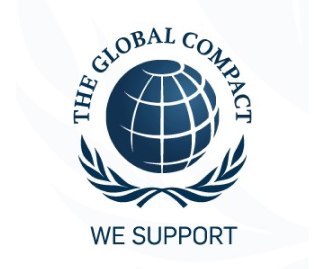The Extractive Sector Transparency Measures Act (ESTMA) was enacted in Canada on December 16, 2014, and brought into force on June 1, 2015. This act delivers on Canada’s international commitments to contribute to global efforts to increase transparency and deter corruption in the extractive sector. The act requires extractive entities listed on a stock exchange in Canada to publicly disclose, on an annual basis, specific payments made to all governments in Canada and abroad.
- Golden Star 2022 ESTMA Report
- Golden Star 2021 ESTMA Report
- Golden Star 2020 ESTMA Report
- Golden Star 2019 ESTMA Report
- Golden Star 2018 ESTMA Report
- Golden Star 2017 ESTMA Report
- Golden Star 2016 ESTMA Report
- Policy On Environment - April 2024
- Policy On Community Relations - April 2024
- Policy On Safety, Health and Wellbeing - April 2024
- Policy On Community Development and Support - April 2024
We work against corruption in all its forms, including extortion and bribery by supporting the Extractive Industry Transparency Initiative (EITI). As committed in 2010, we continued our support of the EITI by publishing our payments to the Government of Ghana and by also providing a quarterly statement of the expected payments each of our regulatory and traditional authorities were expected to receive.
During 2018, we publicly reported the payments we made to the Government of Ghana including: royalties, fees, permit, licenses, SSNIT, VAT, pay as you earn taxes, import duties, withholding tax and the stabilization levy.
As at the end of 2018 our Bogoso and Wassa operations have paid in excess of US$ 526 M in Government payments life to date, of which US$ 183 M were royalty payments.
The payment of royalties to the Government triggers a legislated distribution to the Mineral Development Fund (10%) and the Administrator of Stool Lands (10%). The Mineral Development Fund money is to be used for community projects and to support mining sector institutions. The portion paid to the Administrator of Stool Lands is divided amongst the Administrator of Stool Lands (10%), the District Assemblies where the gold was produced (49.5%), the Traditional Council (18%) and the Stools (22.5%).
Golden Star supports and respects the protection of international human rights within our sphere of influence. To access the human rights policy, please click here.

Golden Star supports the UN Global Compact and we continue to integrate its principles into our business activities.
In 2005 Golden Star, with the full support of our Board of Directors, wrote to the UN Secretary General and committed to adopting the UN Global Compact. Our 2018 Corporate Responsibility Report was our 13th report against the Compact.
As the world's largest, global corporate citizenship initiative, the Compact is, first and foremost, concerned with exhibiting and building the social legitimacy of business and markets. It is a framework for businesses to align their operations and strategies with universally accepted principles in the areas of human rights, labour, the environment and anti-corruption.
Annually we establish goals in regards to the 10 principles of the UNGC under the following four arenas:
Our activities in support of the environment are discussed in the section on Environment
Our activities in support of anti-corruption are discussed in the section on Transparency
As a signatory to the Global Compact, we support the Voluntary Principles on Security and Human Rights. All security and military personnel working at our operations are required to participate in inductions related to the Voluntary Principles, and sign a certificate confirming participation. The training includes a human rights “dos-and-don't s” handbill, adopted by peer institutions.
The 2030 Agenda for Sustainable Development is a driver for Golden Star’s strategic approach to corporate responsibility. The 17 Sustainable Development Goals (SDGs) encompassed by the Agenda are the focal point for development across the globe.
In 2019 Golden Star developed three case studies on our work in support of the SDGs. These case studies are featured in the Global Compact Network Canada (GCNC), SDGs Emerging Practice Guide and can be accessed below along with supporting Fact Sheets on these initiatives.






